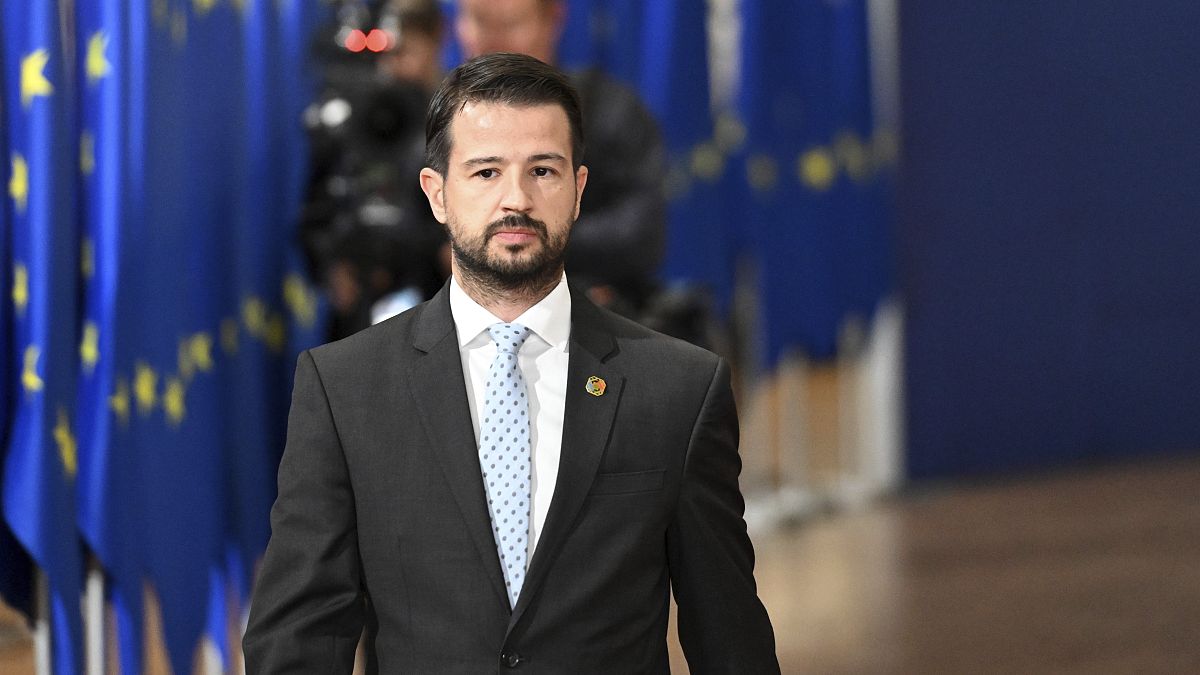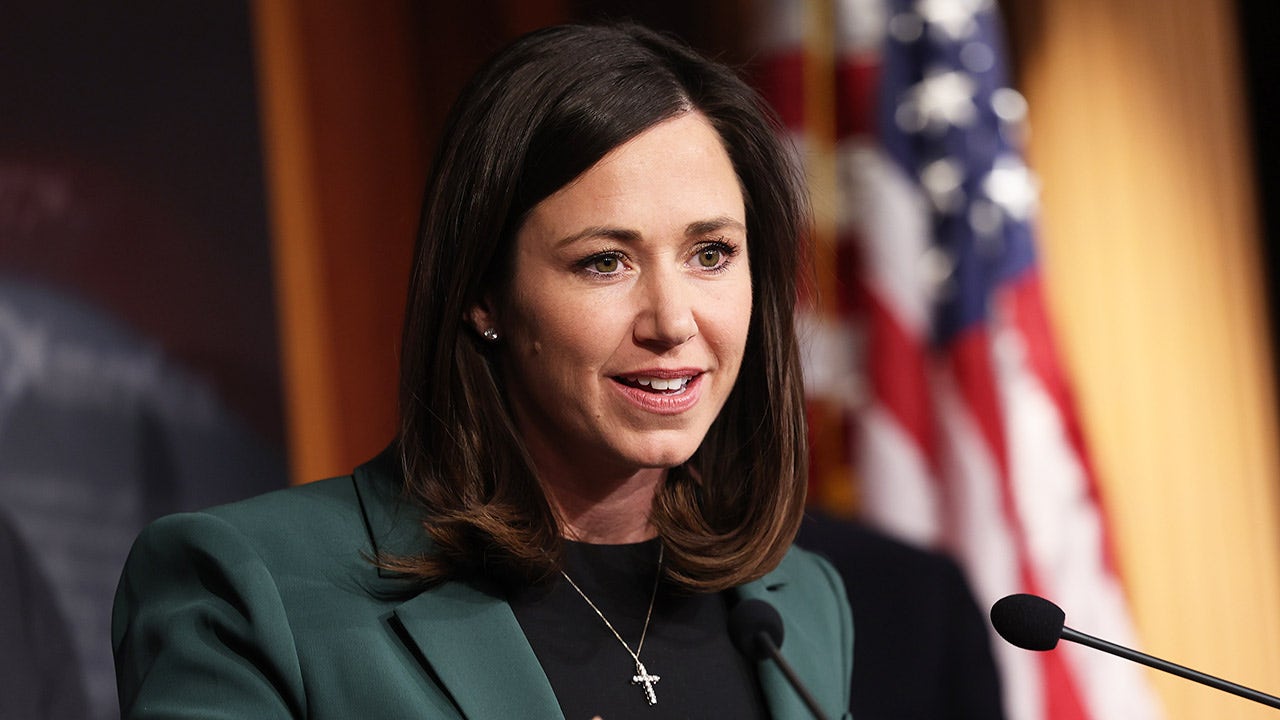Rhode Island
This program will help RI families with special-needs students. Here’s what to know.
PROVIDENCE – Parents trying to navigate the special education system will soon have a helping hand, a go-to program at the state Department of Education to help resolve disputes.
State lawmakers last session approved $450,000 for the creation of a so-called facilitated individualized education program at the Department of Education to provide parents with “early conflict prevention and resolution services” as they broker Individualized Education Programs, or IEPs, and 504 plans with school districts for special-needs students.
“It will be nice to have someone for parents to go to,” said Walter Steenbergen, whose son, Charlie, is on the autism spectrum and is diagnosed with neurofibromatosis, a genetic disorder that causes tumors to form on nerve tissue. “I think we really have to take a wait and see approach with it.”
Parents have long called for a special education ombudsman
Steenbergen is among the parents who long rallied for an independent special education ombudsman to help parents of special-needs children through what can be a daunting and discouraging process. Though they didn’t get the independent watchdog they hoped for, the legislature did back the facilitator program at RIDE.
Rep. Lauren Carson, D-Newport, sponsored the ombudsman legislation to function similar to the state Office of the Child Advocate, which serves as the oversight agency to the Department of Children, Youth & Families. Carson said she intends to ensure that the IEP facilitator program serves parents and she urged them to reach out if they need guidance.
“These are resources for parents to understand the IEP process and to support them through it,” Carson said. “I will be following up with RIDE to ensure the process is working.”
Carson worked with House Speaker K. Joseph Shekarchi, D-Warwick, to secure the funding in the RIDE budget.
The money will be used to hire three full-time staff members within RIDE to help facilitate individualized education programs and 504 services, both of which are intended to ensure that students with disabilities have access to a free and appropriate public education. The funding includes $400,000 for staffing costs and $50,000 for professional development and training, according to House spokesman Larry Berman.
Funding for the program is expected to be included in the RIDE budget annually, he said.
Backed by education commissioner
The state Department of Education leaders are behind the initiative, spokesman Victor Morente said in an email.
“The agency supported the creation of the program because RIDE is committed to centering and being responsive to the needs of families. We heard from parents of an overwhelming desire to receive support throughout the IEP process and, most importantly, during the actual IEP meeting. The Commissioner, who is the parent of a differently abled child, fully understands the enormous stress that a parent may feel during the IEP process,” Morente said.
Commissioner Angélica Infante-Green appointed Jane Slade as the coordinator for the new IEP facilitator program. In the coming months, Morente said, two other education specialists will be hired to support facilitation statewide.
RIDE is also developing training that will be implemented by program staff, as well as district special education officials, Morente said.
Parents to hold RIDE accountable
Steenbergen noted that Slade had served as the state transition coordinator for RIDE, whose office is part of the federal Olmstead settlement.
In 2014, the U.S. Department of Justice determined that the state had violated the civil rights of disabled students for generations by failing to ensure that Rhode Islanders with intellectual and developmental disabilities had the opportunity to work in integrated community settings. The State of Rhode Island entered into a settlement agreement and consent decree with federal officials.
The state has struggled to meet its obligations under the decree. U.S. District Court Chief Judge John J. McConnell Jr. in October ordered that it remain under his oversight through June 2026.
More: Two specialized Providence schools will close, citing staff shortages, falling enrollment
“That raises a concern for me,” Steenbergen said.
Steenbergen said Special Education Advocacy and Reform Rhode Island, or SPEAR, will serve as a watchdog for the new program. SPEAR is among the parent organizations that for years pushed for the creation of an independent special education ombudsman.
“SPEAR wants to hold RIDE accountable,” said Kerri Cassino, a SPEAR member and parent to 13-year-old Ava, who is diagnosed with autism.
Cassino faulted many school districts for failing to have the behavioral awareness necessary to meet the needs of special-education students and referred to RIDE as an “absentee landlord” when it came to ensuring districts are in compliance with federal law.
“We are always in fight or flight. We grieve,” Cassino said. “There are not enough resources and supports.”
Cassino worries about a child being harmed physically and mentally in public schools.
When the process grows contentious
Rhode Island will join 40 other states in launching a facilitator program to help parents and school districts to reach agreements in the best interest of the student without entering formal dispute resolution, Morente said. IEP facilitation will be a free service through RIDE to support families before and after an IEP or 504 meeting.
“We’re hoping that when it starts to get contentious, that the facilitator will step in,” Steenbergen said.
SPEAR hopes, too, that the facilitators will call out the districts when they fail to comply with federal law governing students with disabilities and serve as a voice of reason to parents when necessary.
“We’re hoping that districts will be much less likely to play chicken with parents,” Steenbergen said.
Currently, the special education dispute resolution process entails writing a written complaint, mediation and due process hearings.
Almost 22,000 special-education students statewide
Morente said RIDE will be sharing information on the new service, which will be available to students, families and school districts, in the coming months.
According to Rhode Island Kids Count, as of June 2021, there were 21,697 students in grades K-12 receiving special education services in public schools, or 16%. That is up from 15% in June 2020. Of those, 35% had a learning disability, 19% had a health impairment, 12% had a speech/language disorder, 11% had an autism spectrum disorder, 8% had a developmental delay, 7% had an emotional disturbance, 4% had an intellectual disability, and 3% had other disabilities.
People interested in the services should contact RIDE’s special education call center at (401) 222-8999 or by email at CallCenter@ride.ri.gov .

Rhode Island
Judge says sale of RI hospitals can move forward – TPR: The Public's Radio

Roger Williams Medical Center in Providence and Our Lady of Fatima Hospital in North Providence have been losing money for years. According to Rhode Island Attorney General Peter Neronha, that’s because the California hedge fund that owns them has prioritized investor returns over patient care.
California-based Prospect Medical is now trying to sell these two Rhode Island hospitals to an Atlanta-based nonprofit called the Centurion Foundation.
But Prospect, a national hospital chain based in Los Angeles, ended up filing for Chapter 11 bankruptcy protection last month before it could complete the sale. The company recorded debts up to $10 billion.
The bankruptcy filing meant a judge needed to approve the sale, and time was of the essence, because the company could not afford to keep running the hospitals.
Even so, various stakeholders opposed the sale for different reasons.
Rhode Island’s attorney general attached a list of 85 conditions that must be met before a new owner can take charge.
Federal regulators from the Centers for Medicaid and Medicare Services attached a laundry list of conditions too, as did the United Nurses and Allied Professionals (UNAP), the union representing 1,200 employees at the two hospitals.
At a hearing in Dallas Wednesday, Chief Judge Stacey G.C. Jernigan of the U.S. Bankruptcy Court of the Northern District of Texas heard from state and federal officials, lawyers, bankers, and others before giving the green light.
“The court believes that all objections have been resolved, withdrawn, or overruled,” she determined. “So with that the court will approve the transaction.”
That means the sale can now go ahead, with a closing date set for 30-to-60 days time.
Centurion has not yet come up with financing for the deal, but Anne Wallace, an attorney for Sidley Austin LLC representing the hospital’s current owners, indicated that Centurion’s financing was contingent on a closing date.
Neronha said in a statement, “The bankruptcy court’s approval of this sale provides reason for cautious optimism.”
While Nehrona applauded the idea that the hospitals will no longer be owned by a private equity firm, he emphasized there is still work to be done to meet the conditions set out by the state.
“These safety-net hospitals are absolutely critical for maintaining delivery of safe, affordable and accessible health care services in Rhode Island. Roger Williams and Fatima provide services to largely underserved and underinsured communities, and we must maintain their viability. And in order for us to give these hospitals a fighting chance, our conditions must be met. If all parties meet our conditions as they say they intend to, today brings us one step closer to the finish line.”
Dr. Jerry Larkin, Director of Health for the Rhode Island Department of Health, issued a statement saying he was pleased by the court’s decision to allow the sale to go forward.
“While some steps in this transaction are still outstanding, we are committed to the two facilities having new ownership,” he said. “Rhode Island needs a stable network of hospitals that supports the health and wellness of every community in the state.”
Related
Rhode Island
RI Lottery Mega Millions, Lucky For Life winning numbers for Feb. 11, 2025
The Rhode Island Lottery offers multiple draw games for those aiming to win big. Here’s a look at Feb. 11, 2025, results for each game:
Winning Mega Millions numbers from Feb. 11 drawing
07-30-39-41-70, Mega Ball: 13, Megaplier: 3
Check Mega Millions payouts and previous drawings here.
Winning Lucky For Life numbers from Feb. 11 drawing
08-25-28-41-46, Lucky Ball: 05
Check Lucky For Life payouts and previous drawings here.
Winning Numbers numbers from Feb. 11 drawing
Midday: 2-5-5-1
Evening: 5-1-0-9
Check Numbers payouts and previous drawings here.
Winning Wild Money numbers from Feb. 11 drawing
11-15-16-17-28, Extra: 33
Check Wild Money payouts and previous drawings here.
Feeling lucky? Explore the latest lottery news & results
Are you a winner? Here’s how to claim your prize
- Prizes less than $600 can be claimed at any Rhode Island Lottery Retailer. Prizes of $600 and above must be claimed at Lottery Headquarters, 1425 Pontiac Ave., Cranston, Rhode Island 02920.
- Mega Millions and Powerball jackpot winners can decide on cash or annuity payment within 60 days after becoming entitled to the prize. The annuitized prize shall be paid in 30 graduated annual installments.
- Winners of the Lucky for Life top prize of $1,000 a day for life and second prize of $25,000 a year for life can decide to collect the prize for a minimum of 20 years or take a lump sum cash payment.
When are the Rhode Island Lottery drawings held?
- Powerball: 10:59 p.m. ET on Monday, Wednesday, and Saturday.
- Mega Millions: 11:00 p.m. ET on Tuesday and Friday.
- Lucky for Life: 10:30 p.m. ET daily.
- Numbers (Midday): 1:30 p.m. ET daily.
- Numbers (Evening): 7:29 p.m. ET daily.
- Wild Money: 7:29 p.m. ET on Tuesday, Thursday and Saturday.
This results page was generated automatically using information from TinBu and a template written and reviewed by a Rhode Island editor. You can send feedback using this form.
Rhode Island
Gov. McKee and others will call for action on Assault Weapons Ban

FILE – Gov. Daniel McKee gives his victory speech during an election night gathering of Rhode Island Democratic candidates and supporters on Nov. 8, 2022, in Providence, R.I. (AP Photo/Mark Stockwell, File)
-

 Technology1 week ago
Technology1 week agoMeta bets on its Ray-Bans mainstream appeal with a Super Bowl ad
-

 Politics1 week ago
Politics1 week agoTulsi Gabbard confirmation fate to be tested with key committee vote
-

 Technology1 week ago
Technology1 week agoTrump’s first 100 days: all the news affecting the tech industry
-

 News1 week ago
News1 week ago'Beyond betrayal.' Venezuelans in Florida are angry at Trump immigration policy
-

 World1 week ago
World1 week agoMontenegro pursues values-driven EU enlargement process
-

 Politics1 week ago
Politics1 week agoSenate Republicans introduce bill to reform birthright citizenship, following Trump’s controversial order
-

 World1 week ago
World1 week agoTrump says US will ‘own’ Gaza in redevelopment plan
-

 World1 week ago
World1 week agoNATO chief says European defence without US ‘will not work’


















